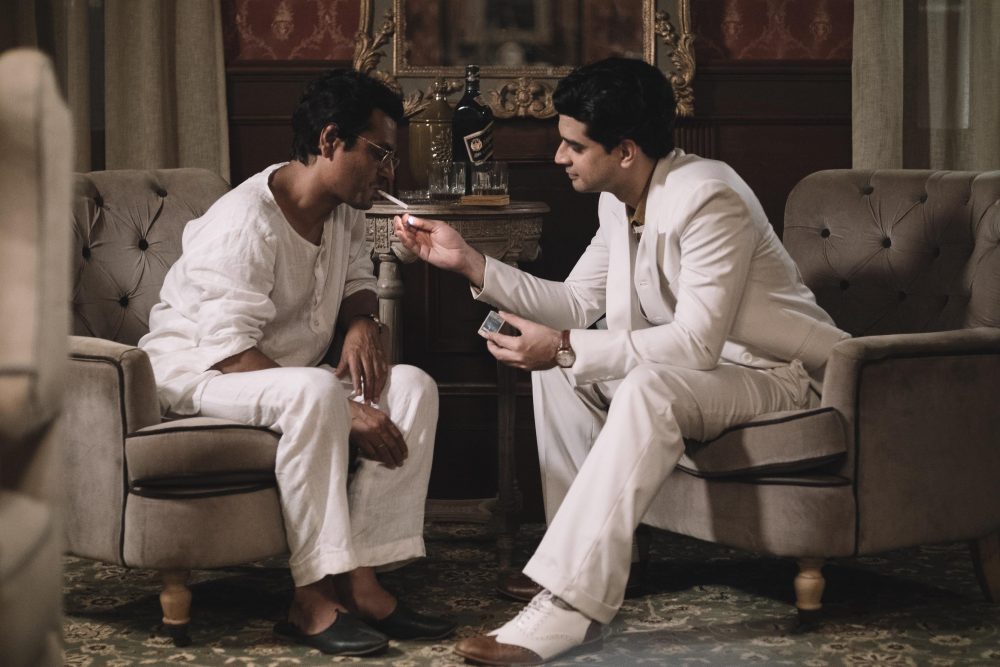
Dir.: Nandita Das; Cast: Navazuddin Siddiqui, Rasika Dugal, Tahir Raj Bhasin, Rajshiri Deshpande; India/France 2018, 112 min.
Nandita Das’ follows her stunning debut Firaaq, with a passionate bio-pic of Indo-Pakistani writer and author Saadat Hasan Manto (1912-1955), whose life was a constant struggle against censorship under British colonial rule and in the newly created Pakistan, whence he fled from Bombay. Rather daringly, Das has integrated five of his short stories into the narrative, that are proof of Manto’s radicalism.
The first is Dus Rupay where a young girl from the slums is sold to two wealthy men for the afternoon: they play with her on the beach, before abusing her. Das covers the time between 1946 and 1950, with Manto (Siddiqui) working as a scriptwriter for Bollywood in Bombay, where feels very much at home before the partition. He and his wife Safia (Dugal) mourn their dead son, but are comforted by their two young daughters. Manto shows his morbid nature on his gravestone: “Here lays Saadat Hasan Manto, wondering if he is the better storyteller or God is!” Manto invariably sides with women in his writings, and it is no accident that he was a good friend of the feminist writer Ismat Chugtai (Despande), who also found herself in the British courts. When asked why he is writing about sex-workers, and not the British repression, Manto answers: “Aren’t they part of society too?”
After the partition, Manto’s friendship with the film star Shyam Chadda (Bhasin) comes to an end when an angry Muslim mob in Pakistan attacks the actor’s Hindu family in Pakistan, making them flee to Bombay, “I could kill you”, says Chadda to Manto – and even though he takes it back, the writer knows his time is up, and he moves to Lahore. But there is little to stimulate him in the Pakistani city, and he is soon in court defending himself for another shot story (Cold Meat), considered obscene. Even though he wins the court case, Manto does not feel at home in Lahore, and his drinking lands him in rehab. Symbolically, he is like the man in one of his stories who remained in no-mans land between the two states, having written “Two or three years after Partition, it occurred to the governments of India and Pakistan to exchange their lunatics, like they had exchanged their criminals. The Muslim lunatics in India were sent to Pakistan, and the Hindu and Sikh lunatics in Pakistani asylums were to be handed over to India.”
MANTO’s stylish aesthetic is photographed by Kartik Vijay in semi-sepia, and Siddiqui gives a subtle splendour to his turn as the caustic, low-level depressive writer who cannot adjust to his new homeland due to his humanist nature. Melancholic, sombre and despondent, he drinks himself to death at only 42. Writing was his life, he even gave up the typewriter to use only pens because he felt they were more pure. AS
CANNES FILM FESTIVAL – UN CERTAIN REGARD 2018